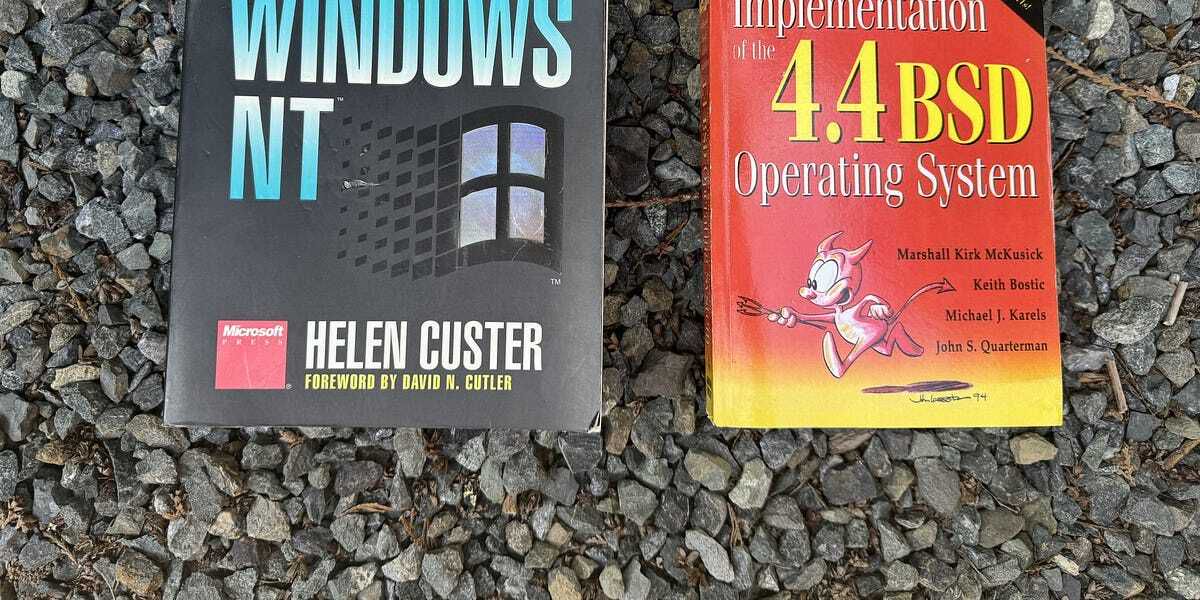Windows NT vs. Unix: A design comparison
(blogsystem5.substack.com)
from pnutzh4x0r@lemmy.ndlug.org to programming@programming.dev on 09 Sep 2024 20:01
https://lemmy.ndlug.org/post/1096153
from pnutzh4x0r@lemmy.ndlug.org to programming@programming.dev on 09 Sep 2024 20:01
https://lemmy.ndlug.org/post/1096153
NT is often touted as a “very advanced” operating system. Why is that? What made NT better than Unix, if anything? And is that still the case?
…
Which brings me to this article—a collection of thoughts comparing the design of NT (July 1993) against contemporary Unix systems such as 4.4BSD (June 1994) or Linux 1.0 (March 1994). Beware that, due to my background, the text is written from the point of view of a Unix “expert” and an NT “clueless”, so it focuses on describing the things that NT does differently.
Long but interesting article that compares the Windows NT kernel to traditional Unix kernels such as that found in BSDs or Linux.

threaded - newest
NT was very advanced compared to its prior Kernel, not compared to Unix.
I mean it was the start of a database system over a text files system and sorta feels unix went the way of the database.
On the other hand, NT’s design derived from VMS’s design, and a lot of people who built the latter system were involved with creating NT.
itprotoday.com/…/windows-nt-and-vms-the-rest-of-t…
Control+F: VMS
Phrase not found
Disappointing that the author didn’t seem aware of Windows NT’s connections to VMS. Some fun facts:
I recently watched a presentation (on YouTube from a conference/offline presentation) about Systemd which also went into its focus/baseline of Linux, not Unix, and how NT supported a stronger service concept from the beginning. It was quite interesting to learn about the differences and the presenter’s assessment and reasoning of the necessity of Systemd or something else that replaces or extends init and rc.d.
Basically, they developed a nice kernel with POSIX compatibility but then choose to ignore that part in the upper layers and explorer.exe?